第25章
In regard to subjects which must have one and one only of two predicates, as (e.g.) a man must have either a disease or health, supposing we are well supplied as regards the one for arguing its presence or absence, we shall be well equipped as regards the remaining one as well. This rule is convertible for both purposes: for when we have shown that the one attribute belongs, we shall have shown that the remaining one does not belong; while if we show that the one does not belong, we shall have shown that the remaining one does belong. Clearly then the rule is useful for both purposes.
Moreover, you may devise a line of attack by reinterpreting a term in its literal meaning, with the implication that it is most fitting so to take it rather than in its established meaning: e.g. the expression 'strong at heart' will suggest not the courageous man, according to the use now established, but the man the state of whose heart is strong; just as also the expression 'of a good hope' may be taken to mean the man who hopes for good things. Likewise also 'well-starred' may be taken to mean the man whose star is good, as Xenocrates says 'well-starred is he who has a noble soul'.' For a man's star is his soul.
Some things occur of necessity, others usually, others however it may chance; if therefore a necessary event has been asserted to occur usually, or if a usual event (or, failing such an event itself, its contrary) has been stated to occur of necessity, it always gives an opportunity for attack. For if a necessary event has been asserted to occur usually, clearly the speaker has denied an attribute to be universal which is universal, and so has made a mistake: and so he has if he has declared the usual attribute to be necessary: for then he declares it to belong universally when it does not so belong. Likewise also if he has declared the contrary of what is usual to be necessary. For the contrary of a usual attribute is always a comparatively rare attribute: e.g. if men are usually bad, they are comparatively seldom good, so that his mistake is even worse if he has declared them to be good of necessity. The same is true also if he has declared a mere matter of chance to happen of necessity or usually; for a chance event happens neither of necessity nor usually. If the thing happens usually, then even supposing his statement does not distinguish whether he meant that it happens usually or that it happens necessarily, it is open to you to discuss it on the assumption that he meant that it happens necessarily: e.g. if he has stated without any distinction that disinherited persons are bad, you may assume in discussing it that he means that they are so necessarily.
Moreover, look and see also if he has stated a thing to be an accident of itself, taking it to be a different thing because it has a different name, as Prodicus used to divide pleasures into joy and delight and good cheer: for all these are names of the same thing, to wit, Pleasure. If then any one says that joyfulness is an accidental attribute of cheerfulness, he would be declaring it to be an accidental attribute of itself.